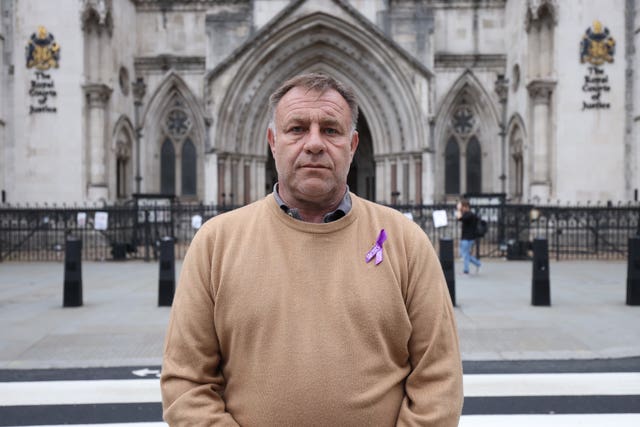A judge has ruled that a 12-year-old boy, who has been at the centre of a High Court treatment dispute after suffering brain damage in an incident at home in April, is dead.
Doctors treating Archie Battersbee at the Royal London Hospital in Whitechapel, east London, thought that the youngster was “brain-stem dead”.
They said life-support treatment should end and Archie should be disconnected from a ventilator.
Archie’s parents, Hollie Dance and Paul Battersbee, from Southend, Essex, say the youngster’s heart is still beating and want treatment to continue.
On Monday Mrs Justice Arbuthnot ruled that Archie was dead and said doctors could lawfully stop treating him.
Lawyers representing the Royal London Hospital’s governing trust, Barts Health NHS Trust, had asked Mrs Justice Arbuthnot to decide what moves are in Archie’s best interests.
Mrs Justice Arbuthnot delivered a ruling on Monday.
She recently finished overseeing a hearing in the Family Division of the High Court in London.
The judge heard that Archie suffered brain damage in an incident at home in early April.
Ms Dance told how she found him unconscious with a ligature over his head on April 7 and thinks he might have been taking part in an online challenge.
The youngster has not regained consciousness.
Lawyers representing Archie’s family had told the judge that his heart is still beating.
A campaign organisation called the Christian Legal Centre is supporting Archie’s family.
Mrs Justice Arbuthnot concluded that Archie had died “at noon on 31st May 2022”, shortly after the most recent MRI scans had been taken.
“I find that irreversible cessation of brain stem function has been conclusively established,” she said in a written ruling.
“I give permission to the medical professionals at the Royal London Hospital to cease to ventilate mechanically Archie Battersbee; to extubate Archie Battersbee; to cease the administration of medication to Archie Battersbee and not to attempt any cardio or pulmonary resuscitation on Archie Battersbee when cardiac output ceases or respiratory effort ceases.”
She added: “The steps I have set out above are lawful.”

The judge went on: “If Archie remains on mechanical ventilation, the likely outcome for him is sudden death and the prospects of recovery are nil.
“He has no pleasure in life and his brain damage is irrecoverable.
“His position is not going to improve.
“The downside of such a hurried death is the inability of his loving and beloved family to say goodbye.”
The judge said that, had she not concluded Archie is dead, she would have ruled that it was not in his best interests to continue to receive life-support treatment.
Ms Dance said she aimed to launch an appeal bid.
“I am devastated and extremely disappointed by the judge’s ruling after weeks of fighting a legal battle when I wanted to be at my little boy’s bedside,” she said, in a statement after the ruling.
“I feel sickened that the hospital and the judge have failed to take the wishes of the family into consideration.
“I do not believe Archie has been given enough time.
“From the beginning I have always thought ‘why the rush?’
“His heart is still beating, he has gripped my hand, and as his mother, I know he is still in there.
“Until it’s God’s way I won’t accept he should go.
“I know of miracles when people have come back from being brain dead.
“This case raises the significant moral, legal and medical questions as to when a person is dead.
“What does this ruling today tell us about where our society is at?
She said: “We intend to appeal and will not give up on Archie.”
Ms Dance added: “Basing this judgment on an MRI test and that he is ‘likely’ to be dead, is not good enough.
“This is believed to be the first time that someone has been declared ‘likely’ to be dead based on an MRI test.
“The medical expert opinion presented in court was clear in that the whole concept of ‘brain death’ is now discredited, and in any event, Archie cannot be reliably diagnosed as brain-dead.”
Andrea Williams, chief executive of the Christian Legal Centre, said: “This ruling sets a troubling and dark precedent.
“This case has raised significant moral, legal and medical questions as to when a person is dead.”
She added: “We will continue to stand with the family and continue to pray for a miracle.”



